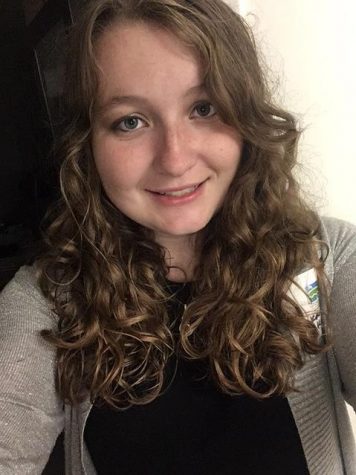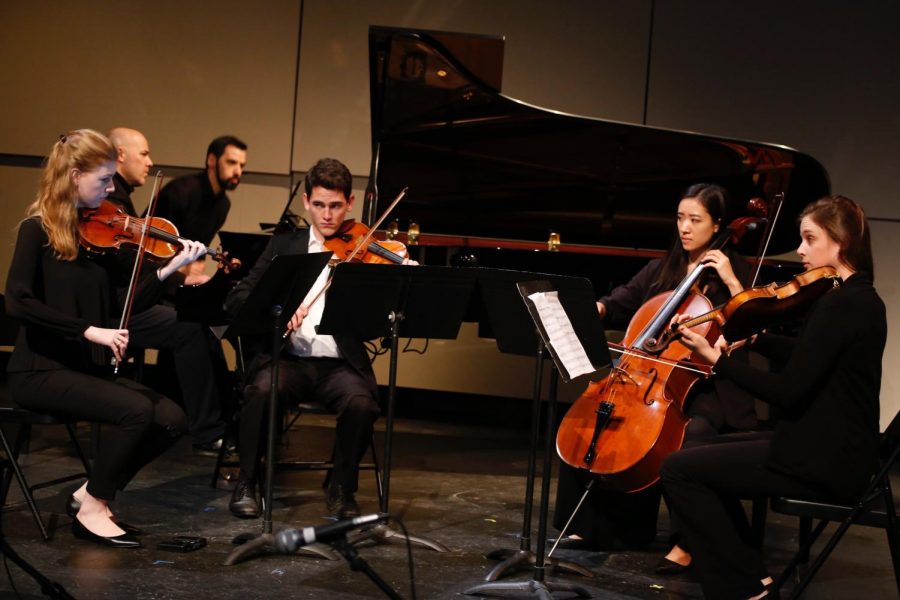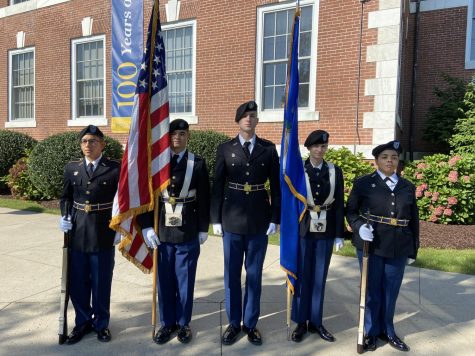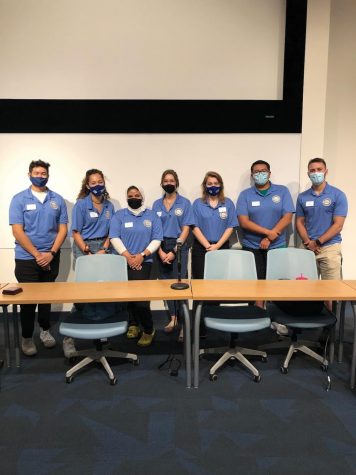University Remembers Holodomor
On Dec. 1, the university gathered in Bucknall Theater to remember the 85th anniversary of Holodomor and the 5th anniversary of the Maidan Revolution of Dignity, both events in the history of the Ukraine.
The event was orchestrated by Victor Markiw, lecturer in music and coordinator for the music department, and it featured long musical interludes in between remarks from members of the local community, including university students and natives of Ukraine.
“I thought the university is exactly the place where a somewhat unknown genocide of huge proportions as well as Ukraine, country of 45 million, desperately clinging to their democratic views and independence would be an appropriate, necessary and educational event,” said Markiw.
The Holodomor was a famine-genocide in Ukraine from the early 1930s, initiated because Joseph Stalin, former leader of the Soviet Union, wanted to punish Ukraine farmers who resisted collectivization. Conservative estimates say 4.5 million people died in one short year. The Revolution of Dignity occurred just five years ago, when a peaceful student protest turned violent upon government instigation.
Olena Lennon, adjunct professor of political science, opened the ceremony, and referred to the Holodomor as the “least known genocide in human history.” Her remarks were followed by a video from Sen. Chris Murphy (D-Conn.) who expressed his support for Ukraine as they continue to experience political unrest. He also thanked the university for “being a part of Connecticut’s rich cultural heritage.”
Andrei Nikitchyuk, a native of Crimea, and Maxim Polonsky, a native of Ukraine who was present at the Revolution of Dignity, spoke about their experiences. Nikitchyuk said that the Holodomor fit the “forced replacement of a population” definition for a genocide and that there are still totalitarian powers in the world who will do anything to stay in power.
“What is happening in Crimea right now is horrific,” said Nikitchyuk.
Michael T. Lo Piano, a Ph.D. candidate in history and renaissance studies at Yale University, asked why does this happen, and what can we do.
According to Lo Piano, Ukraine’s geography makes it hard to define clear borders while also it also allows the country its agricultural wealth. The combination of agricultural wealth and a lack of clear borders for protection leave the country susceptible to extortion, he said. Lo Piano spoke about the importance of giving the Ukraine people liberty to combat extortion, as well as remembering events like the Holodomor and the Revolution of Dignity.
“Remember what the people of Ukraine fight for,” said Lo Piano.
Markiw said he wants to hold an event every year and that he wants each remembrance to be unique but focused on the music and the victims.
Markiw was born to Ukrainian emigres and had distant relatives who fell victim to the Holodomor, as well as the Great Purge, a large scale political repression from 1936-1938, in which many Communist leaders and suspected government traitors were purged. He also spent time teaching in Ukraine after receiving a U.S. Fulbright Scholar Award in 2013, and he became involved in the protests leading up to the Revolution of Dignity in 2014.
“In the Ukrainian capital Kyiv, and on Independence Square or Maidan, I witnessed atrocities implemented by Ukraine’s so-called leaders, but also the most touching acts of human kindness, inclusiveness, resilience, and selflessness one could ever imagine,” said Markiw. “People from all over Ukraine, Western Europe, and other Slavic countries, including ethnic Russians fought and continue to fight for Ukraine’s independence and freedom.”

Karina Krul is a senior marine biology major with a triple minor in psychology, political science and marine affairs. This is her fourth year with The...










